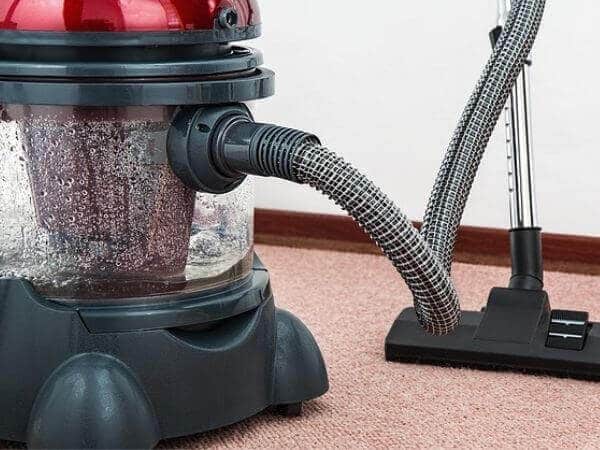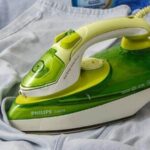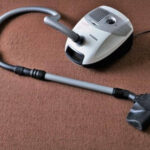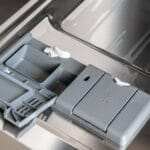While reading through one of my favorite forums, I came across a lady who had vacuumed water accidentally. Her concern was the safety of the vacuum even though she unplugged it immediately.
Undoubtedly, the thread featured all kinds of opinions. However, what caught my eye is some people insisting that vacuuming water is wrong while others explaining that it is a thing dependent on the type of a vacuum. I quickly realized how useful the information can be to my readers.
Also read: Can you vacuum glass
So can you Vacuum Water?
To begin with, you cannot vacuum water with a regular vacuum. It is specifically designed to collect dirt such as dust, debris, pet hairs, broken pieces of glass and so on.
Moving it back and forth over a wet surface or carpet is not only wrong but also dangerous. Not to mention, liquid spills are even worse.
Why so?
As aforementioned, regular vacuums are meant for collecting dirt in solid state. Their technology for waste disposal comes in two forms. These include bagged and bagless types.
Bagged vacuum cleaners feature a disposable bag that goes into a zipped clothed section inside the machine. All dirt and debris collects inside the bag until it is full and ready for disposal.
Further, some have a regular or HEPA air filter that enhances their efficiency.
Bagless vacuum cleaners have a compartment that holds dirt and debris before it is emptied from the machine. Since the chamber is transparent, it allows users to see dirt as it collects inside.
With both of these designs, there is no appropriate place for water and moisture to collect in the machines. Firstly, the bags in the former are made of porous material that can leak water to other parts.
Secondly, water cannot also collect in the dust compartment for the latter design.
In both cases, it exposes the inner parts of the machines to potential damage, and the users to electrocution. Another likely problem is causing the vacuum to smell bad. The odor develops after moisture accumulates inside and combines with warmth to create a conducive environment for mold growth.
Vacuuming Water Correctly
If you intend to vacuum water from your floor and carpet deliberately, a wet and dry or shop vacuum should be your go to option. Its design is favorable for both solid and liquid waste. Further, the sizes range from small household options to large commercial cleaners.
Another benefit that you are likely to derive from these types is top notch performance. A good shop-vac sucks powerfully. You can even use it to remove some waste from your drains.
On the downside, a shop-vac is quit hands on. You must clean it after every use. Allowing moisture to sit inside can lead to molding.
Frequently Asked Questions
What happens if you vacuum water?
Vacuuming water with a regular vacuum cleaner can damage it. Further, the move creates the risk for electrocution. Turn off the switch and unplug your machine immediately if you vacuum water accidentally.
Can you vacuum small amounts of water?
There is no need for taking the risk to vacuum small amounts of water with a regular machine. The machine costs a money that can go down the drain. Instead, use a mop or rag to clean the spillage. Allow the surface to dry before vacuuming the entire house.
What can I use to vacuum up water?
If your house is wet as a result of a leak, flooding or any other reason, use a wet and dry or shop vacuum to pick up the water. A small shop-vac is quite affordable. However, you can also hire a heavy duty one to clean up heavy flooding.
Can you vacuum water out of carpet?
Without doubt, you can vacuum water out of carpet with a shop-vac. These type of vacuums are a worthy investment for such a task.
Can you vacuum with a wet filter?
No! If you vacuum with a wet filter, all the dirt and dust will stick around it thereby interfering with the performance of the machine. Instead, wipe the filter dry and place it back in the machine.
Do I need to remove filter for wet vac?
The filter should be in its correct place when vacuuming dry surfaces with a shop-vacuum. On the other hand, guidelines from most manufacturers require users to take it out before vacuuming water.
Do all shop vacs pick up water?
Shop vacuums by different manufacturers may vary slightly in design. Their level of efficiency may also differ. However, they are all capable of picking water and other liquids.





